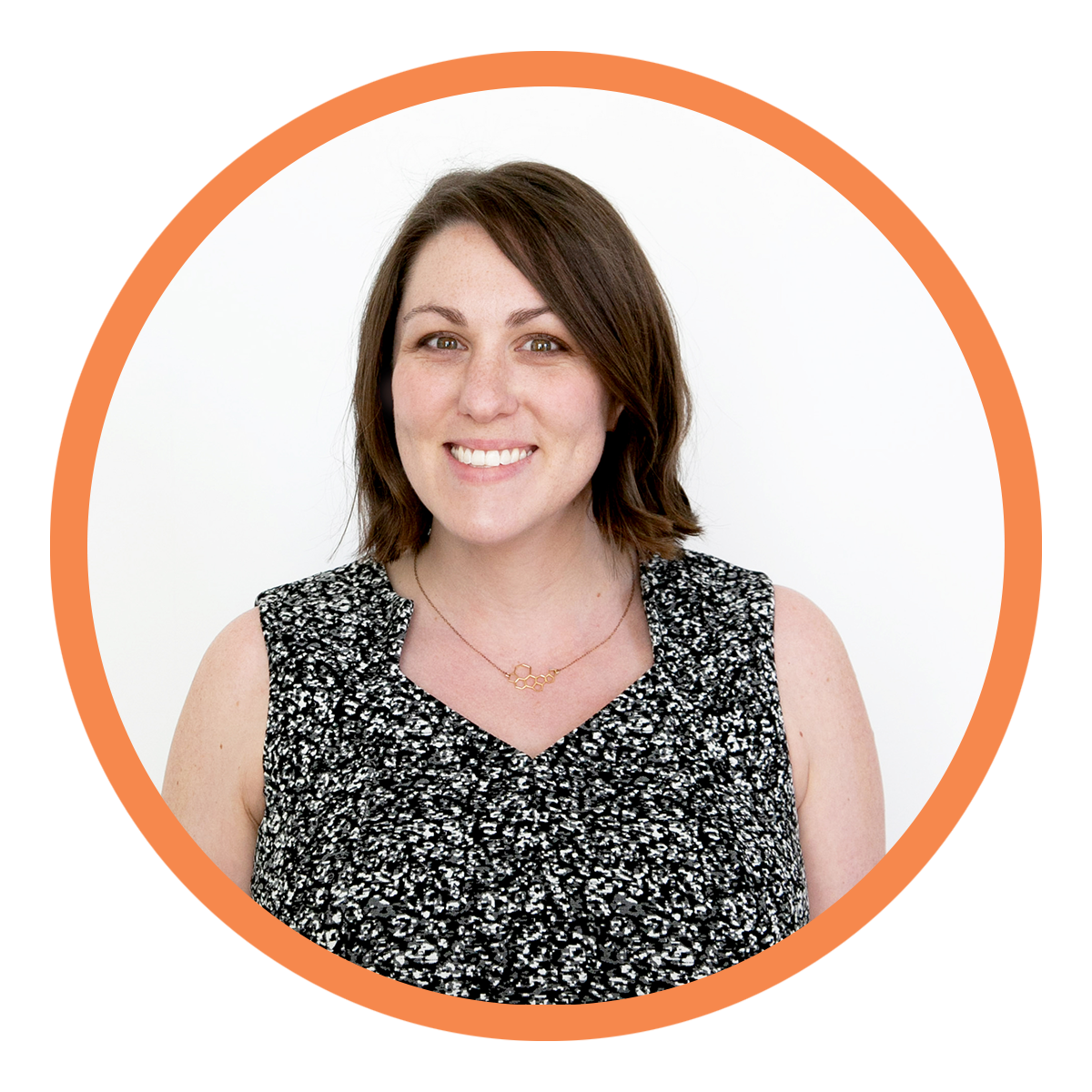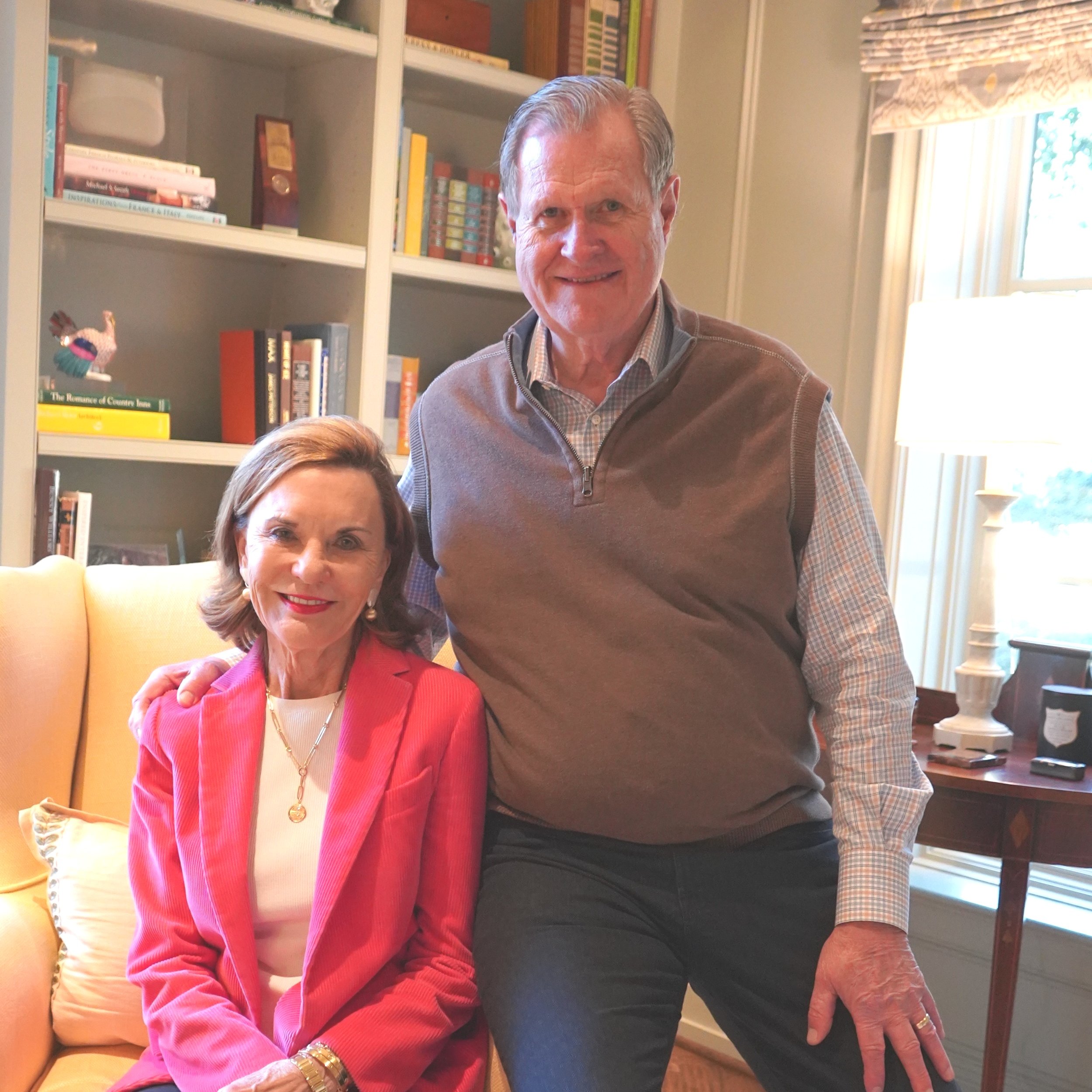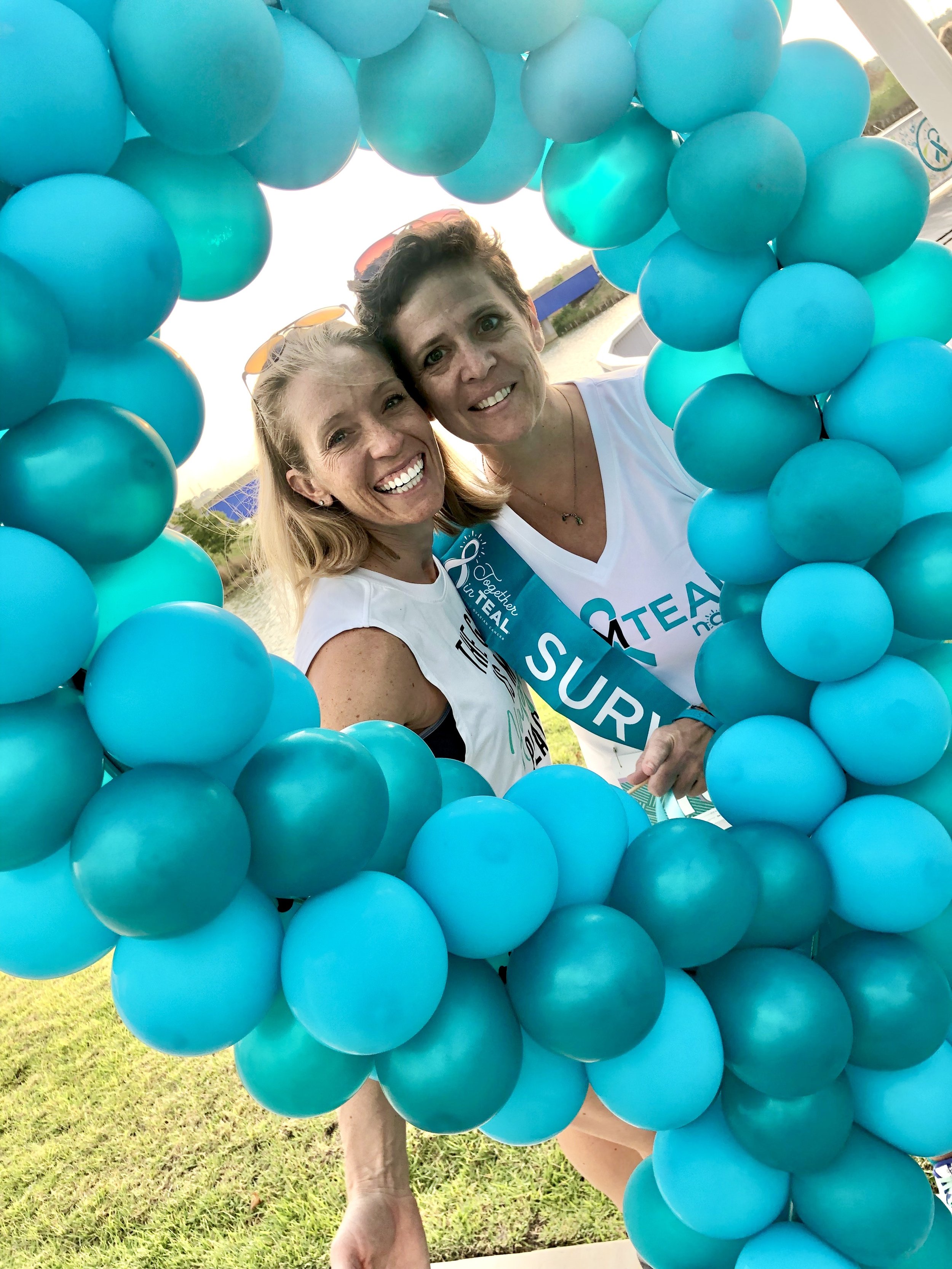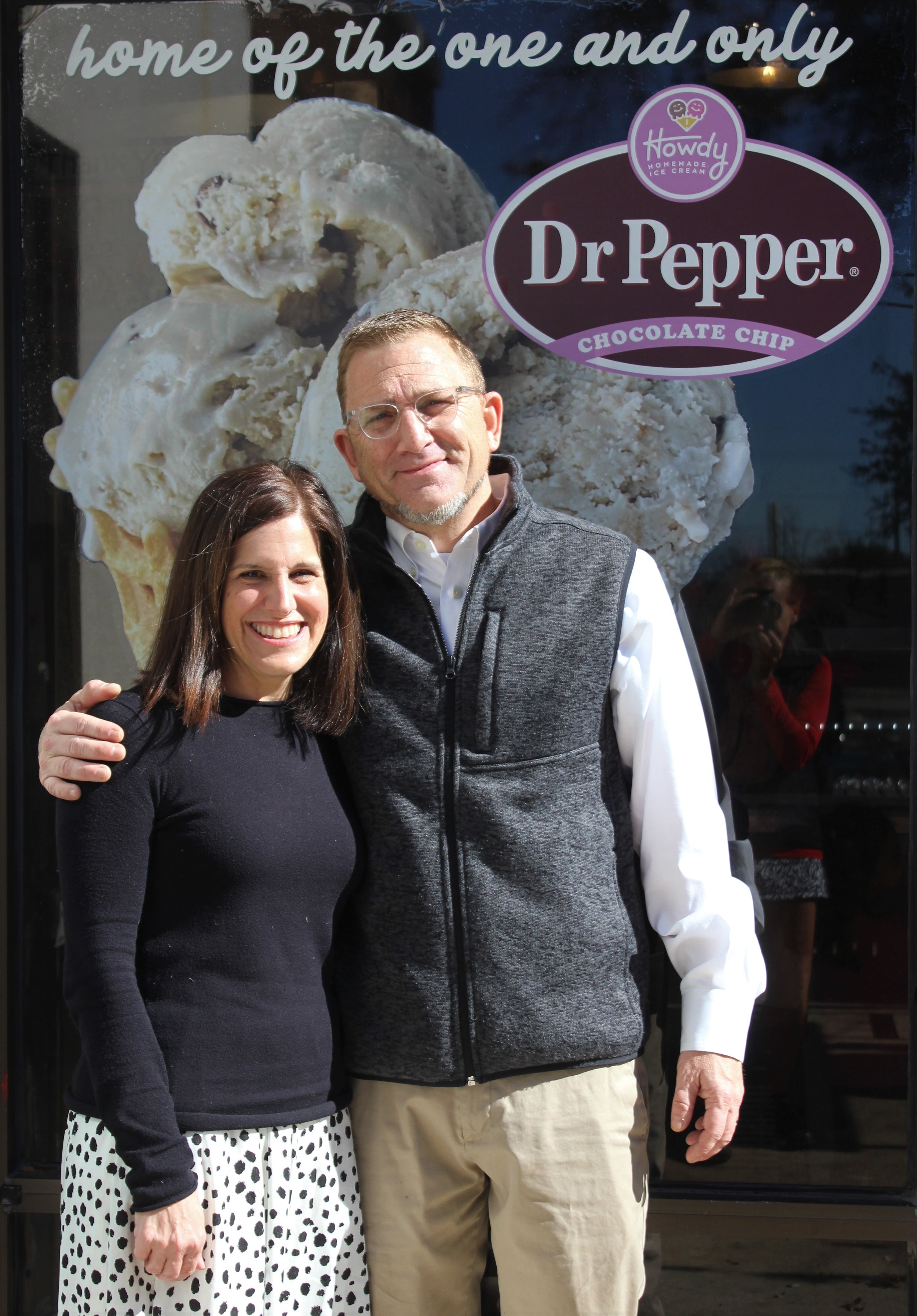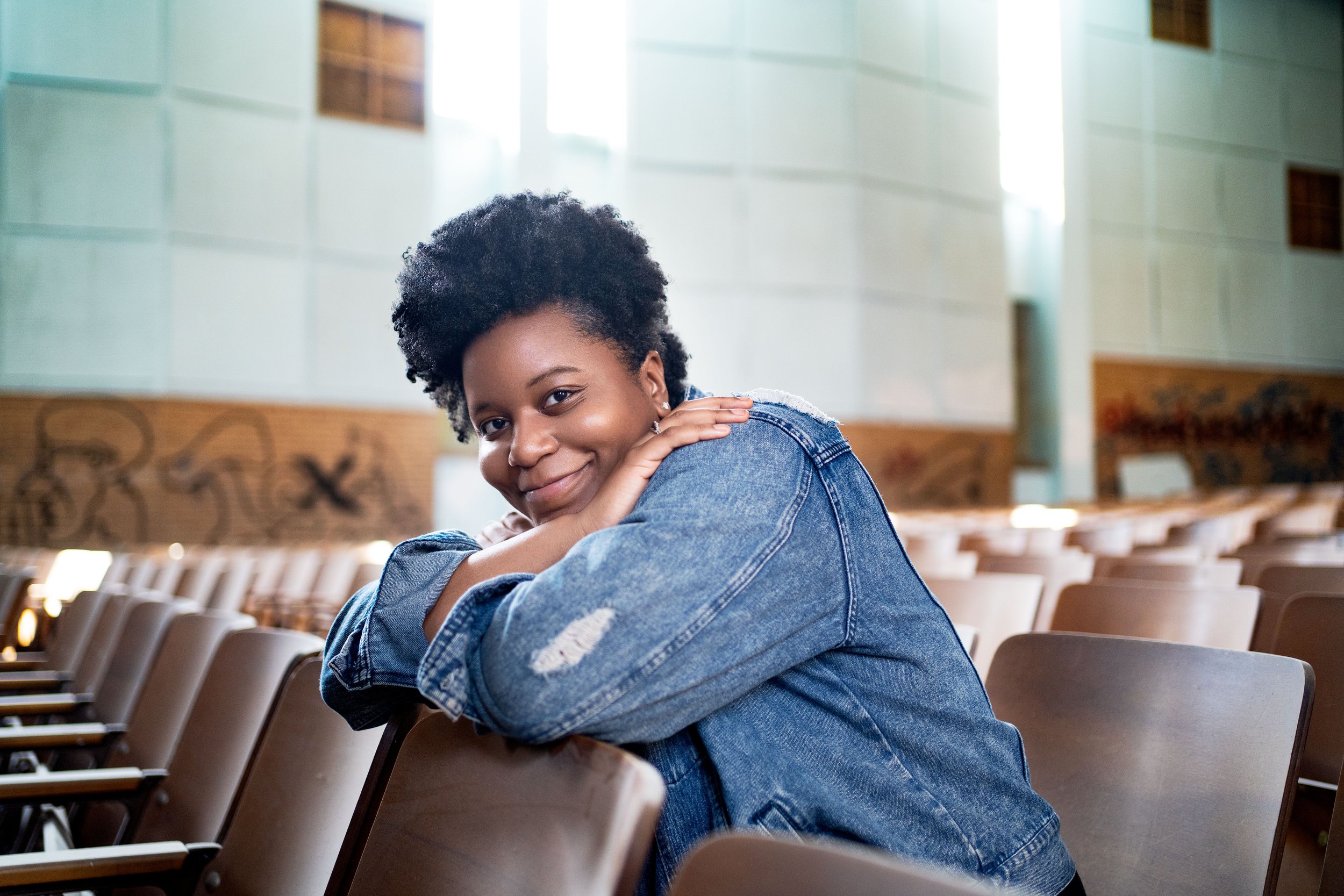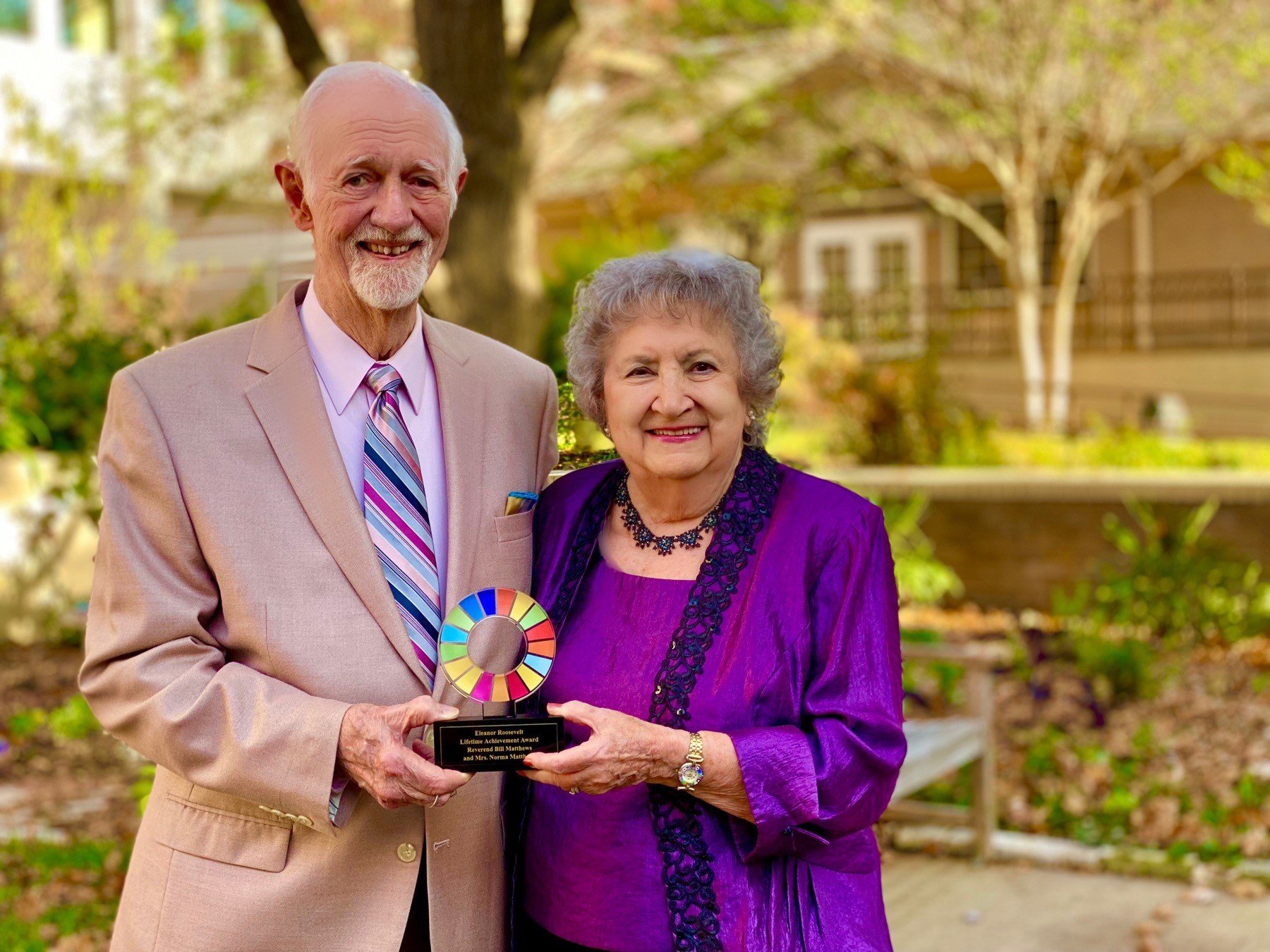Published June 24, 2021 at 10:52am.
Story and photos by Mary Martin.
What does it look like to carry on the legacy of a Nobel Peace prize winner in your local community? Graduate students who earn a spot with the Albert Schweitzer Fellowship in DFW metroplex are given the opportunity to not only continue a line of humanitarian work, but also refine hands-on strategies for the health, education, and social care of their neighbors.
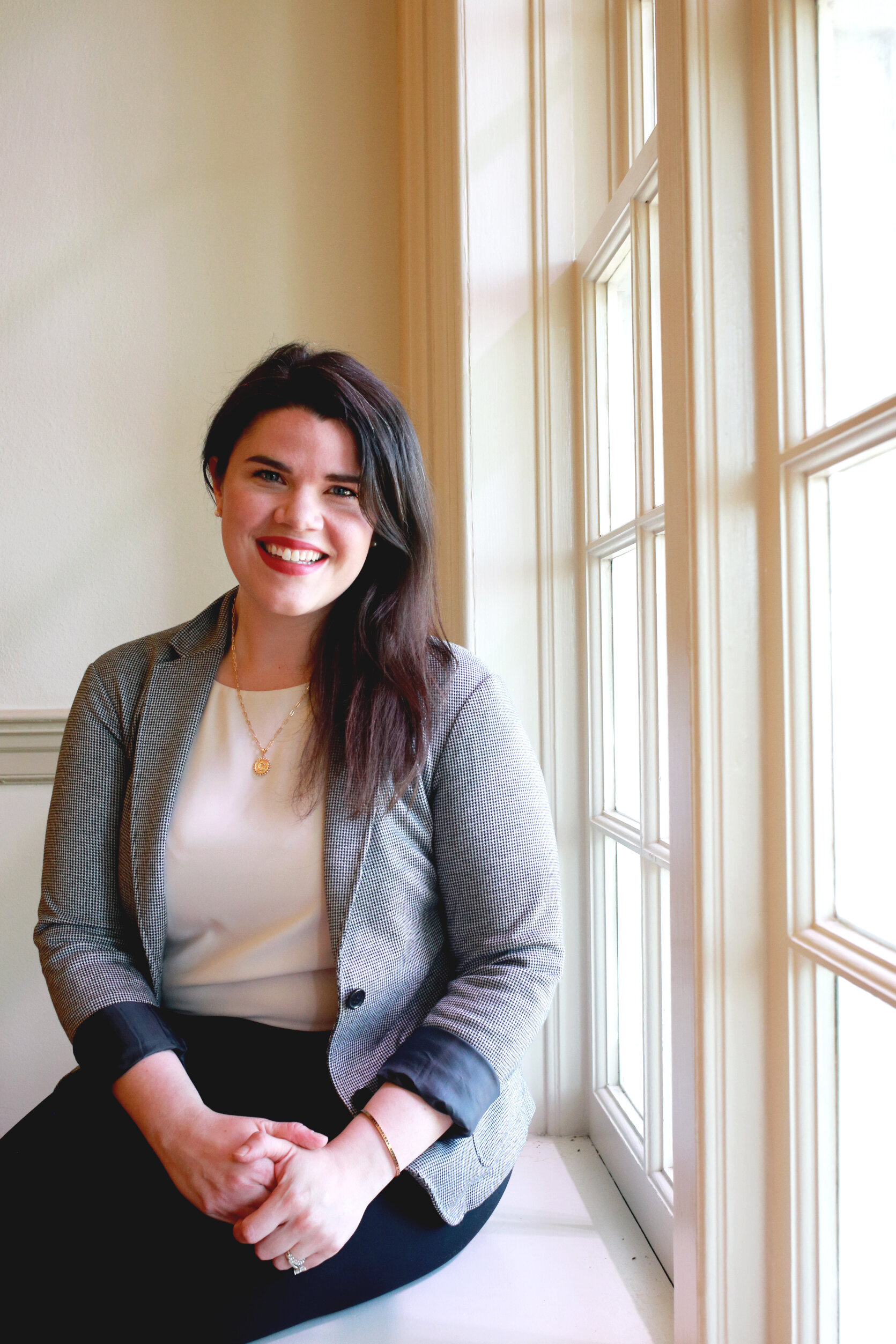
Courtney Roy Ranger leads the Schweitzer Fellowship’s Dallas-Fort Worth chapter, in partnership with SMU. Originally from south Louisiana, Courtney spent several years in New York City at the Gilder Lehrman Institute of American History, establishing the Affiliate School Program. “That program opened my eyes to the challenges in the schools that kids, teachers, and families are facing,” Courtney says. “They are trying to move past barriers like stable housing and food insecurity, while looking around and seeing the problems that can’t be met by a school.” Courtney also learned about the layered social determinants of health, and knew that she wanted to be a part of helping students improve not only at school, but also at home.
In 2014 Courtney was given that opportunity, moving to Dallas to start the first Schweitzer Fellowship program in North Texas. “I had one binder of information,” Courtney says. “But our supporters here in Dallas truly take an active role, consulting and mentoring with students along the way. Texas has a way of getting things done that I didn’t expect, and I get to see it at every level of the philanthropic community.” As an outsider, Courtney wasn’t sure what to expect, but now, after nearly seven years of collaborating across academic, nonprofit, and medical organizations, she sees commitment and passion around every corner.
Albert Schweitzer created the original program in 1940, supporting a rural hospital in Lambaréné, Gabon, West Africa, and a modern version was launched in 1994. Today there are chapters across 13 U.S. cities and more than 200 fellows are selected each year. Over the lifetime of the program, Fellows for Life have contributed 741,879 hours of service for community partners.
One of the defining pillars of the Schweitzer Fellowship is program sustainability. Good ideas are filtered not only through a lens of impact and feasibility, but also a lens that ensures any project a fellow begins is one that can be continued either by a future fellow, or the organization itself. Projects like smoking cessation, nutrition, student mentoring, and diaper banks have thrived with academic and peer support from both the local Schweitzer Fellowship, as well as chapters around the world.
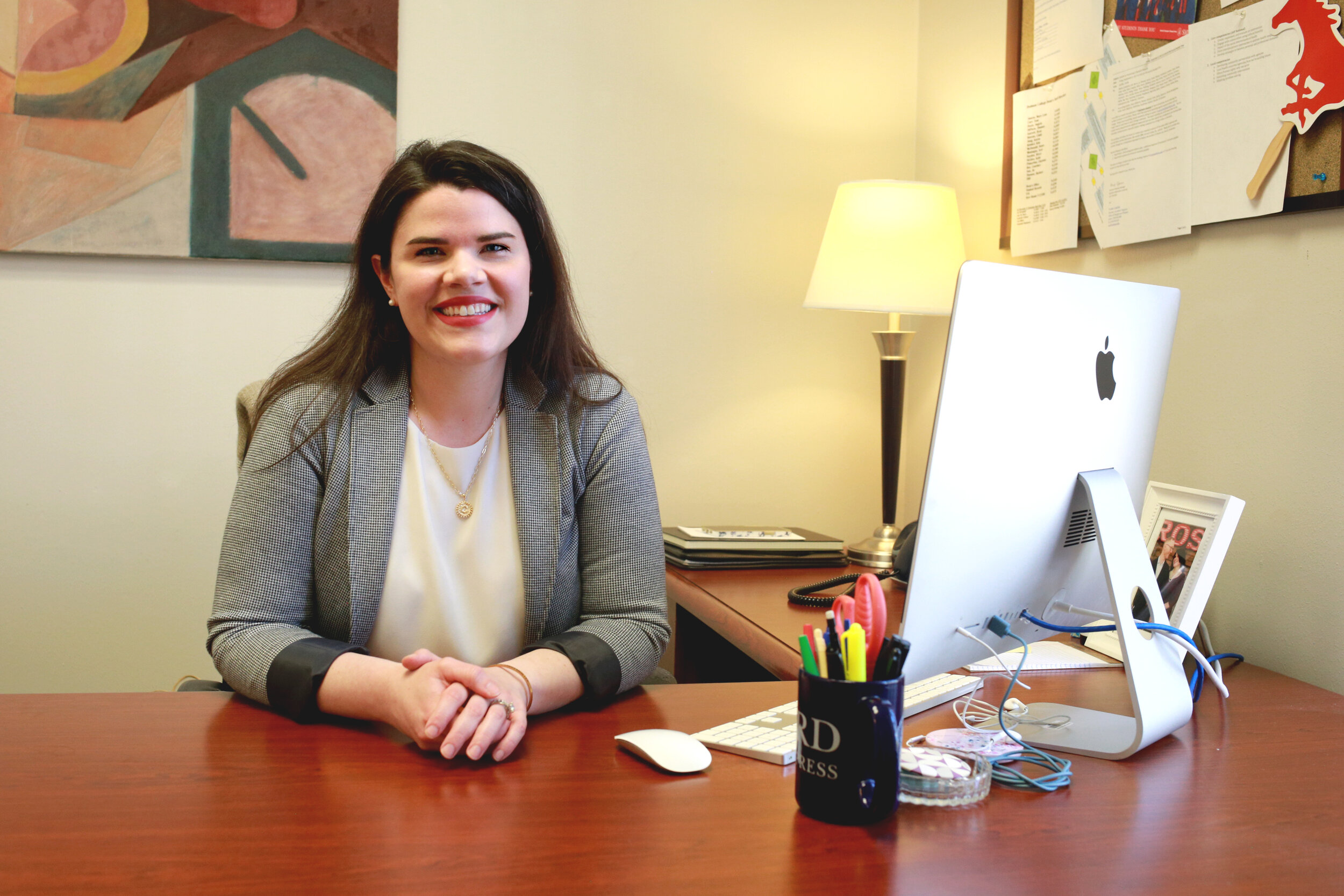
Justin Barringer was part of the Schweitzer fellowship in the class of 2017-2018 and used the experience to launch a diaper pantry serving the White Rock area. “It was another Schweitzer Fellow, Leslie Johnson, who introduced me to her mom, Barbara Johnson, who runs Hope Supply Co., the organization with whom we partner most closely to provide diapers, wipes, feminine hygiene products, and myriad other goods to folks in East Dallas,” Justin says. “The work has since grown to be a one-stop-shop for community services, so guests can now come for not only hygiene supplies but also food, rotating varieties of medical care, Christmas toys, school supplies, and information from over a dozen other community service providers.”
The newly launched organization, Diapers Etc., is headquartered at Owenwood Farm and Neighbor Space, and has already provided approximately 700,000 diapers and over $100,000 worth of other items to neighbors in need. “A number of folks who came first as guests to receive items now serve as leaders, and we have volunteers from a variety of ages, races, languages, and socio-economic statuses,” Justin says. “The lessons I learned and the friendships I formed through the Schweitzer Fellowship made this work possible while also helping shape my career as a humanities scholar trying to effect positive change in the social determinants of health.” Justin completed his doctorate of philosophy with a focus on religious ethics this past spring and now serves as the Director of Social Outreach at Owenwood Farm and Neighbor Space.
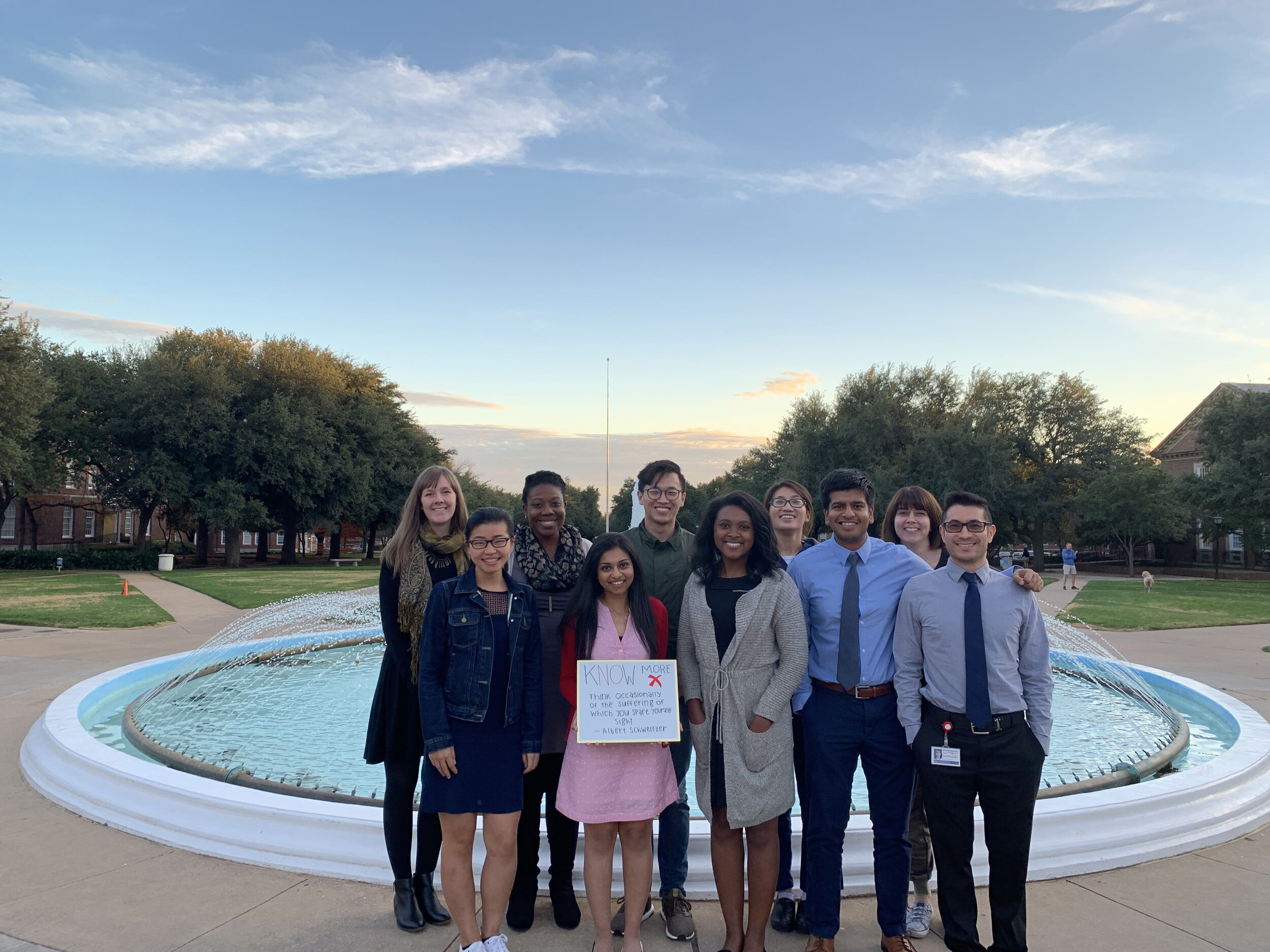
The 2018-2019 Dallas-Fort Worth Schweitzer Fellows. Photo courtesy of Schweitzer Fellowship.
Leah Smith joined the Schweitzer Fellowship for the class of 2019-2020, choosing Brother Bill’s Helping Hand as her community project site. Originally from Fort Worth, Leah graduated with a biomedical engineering degree and then started medical school at UT Southwestern, with the goal of starting a family practice in an underserved area of North Texas.
Her work at Brother Bill’s picked up where a previous Schweitzer fellow had left off, taking a health education model, and creating a summer camp focused on mentorship for young women. “The summer camp started with a leadership curriculum, but after the summer program ended, about eight to ten girls continued meeting once a month with me to talk about health, friends, and nutrition,” Leah says.
The health literacy focus transformed into individual mentoring once meetings went virtual due to COVID, but Leah felt support from Courtney and the other fellows in her cohort. “Courtney is phenomenal, and this fellowship shaped the entire plan for my career,” Leah says. “It was hard to do while in med school, but the structure helped me dedicate time to be involved with the community. It was the best thing I did in med school.”
Leslie Ekpe, from the most recent class of Schweitzer fellows, is a doctoral student at Texas Christian University who focused her year-long fellowship on student athletics. She launched the Premier Athlete Project in collaboration with the Fort Worth Children’s Partnership, bringing together her years as a professional communications teacher as well as her own experience as a student-athlete. “My research seeks to promote access for marginalized students at the K12 and post-secondary institutional level,” Leslie says. “As a past student-athlete, I was influenced by many of the mentors that I had growing up. I played basketball and volleyball throughout my academic career, and I enjoyed meeting athletes worldwide. I am blessed to have mentors and individuals that helped guide me along the way.”
Serving underrepresented communities in Forth Worth by connecting education, culture, and athletics, the Premier Athlete Project promotes individual student development and opens opportunities in sports and higher education. “Many student-athletes in lower socioeconomic neighborhoods at the K-12 level do not go on to play intercollegiate sports. However, it is not always because they cannot afford to,” Leslie says. “It is usually associated with the factors that are needed to know when seeking institutions to play. Even though many individuals may not be in the best position, I believe with the right mentors, the right resources, anyone can be successful.”
Courtney points to the vision of the global Schweitzer Fellowship when discussing potential projects and connections. “I ask our fellows, what do they think they need and need to learn? What’s going well? Not just what’s going wrong. How can we build on that together? The fellowship is about partnership building, not just university to university, but also university to nonprofit, and fellow to community.”

Upheaval, big community needs, and isolation challenges met the 2020-2021 fellowship class but as they pivoted to an entirely virtual model, the program continued to thrive. “Medical classmates never met in person,” Courtney says. “The cohort never met in person. Because we had students from multiple universities, we chose to abide by the strictest rules, but I was in awe every day that these students would get up and find any way they could to reach folks. They showed ingenuity and commitment. They showed up because they cared and because people needed resources and connection.”
Because of the foundational element of program sustainability, most Schweitzer Fellowship projects continue, whether as a full-fledged nonprofit program, or as a project passed onto the next year’s cohort. “We are here to help nonprofits fulfill what they are aiming to accomplish, without taking too much time away from their own staff. Together we are helping nonprofit teams to operate efficiently.”
Fellows also communicate with each other across various national locations, seeing if solutions in San Francisco may be able to adapt to a program in Dallas. “There is no one-size-fits-all solution for any nonprofit or issue, but we work to find out what best suits the community and the site,” Courtney says. “We encourage fellows to offer ideas with a ‘this is what I’m thinking, but I’d love to learn from your expertise,’ kind of approach.”
If the Schweitzer Fellowship is a gathering table, local organizations are bringing their service connection, universities are bringing academic expertise, and graduate students are bringing their passion and fresh ideas for health and well-being.
To learn more about becoming a Dallas-Fort Worth Schweitzer Fellow or getting involved as a supporter, visit their website or make a donation through SMU. The application window closes in January each year.
More Good Stories
Featured
When Kathy and Larry Helm heard about The Senior Source’s 60th Birthday Diamond Dance-Off, they knew they had to put on their dancing shoes! For the Helms, this event combined two of their passions into one. Celebrating and supporting The Senior Source, a Dallas-area nonprofit that has been serving older adults for 60 years, and dancing together, which they have been doing since they were high school sweethearts. Both Kathy and Larry have chaired the board of directors of The Senior Source and have been proud supporters since 1998. It seemed only fitting they should be voted into the finals to dance on stage at Klyde Warren Park this past summer.
In 2020, more than 912,000 women were diagnosed with some form of cancer in the United States alone. During that same pandemic year, countless medical appointments were canceled while people were social distancing, and yet still each day nearly 2,500 women heard the news, “you have cancer.” There is no doubt that these words can be crushing to hear, but what’s equally crushing is the lack of tangible, encouraging support that exists to help women feel beautiful, strong or “normal” before, during and after cancer treatment.
When Tom Landis opened the doors to Howdy Homemade in 2015, he didn’t have a business plan. He had a people plan. And by creating a space where teens and adults with disabilities can find meaningful employment, he is impacting lives throughout our community and challenging business leaders to become more inclusive in their hiring practices.
Have you ever met someone with great energy and just inspired you to be a better you? Nitashia Johnson is a creator who believes by showing the love and beauty in the world it will be contagious and make an impact. She is an encourager and knows what “never give up” means. Nitashia is a multimedia artist who works in photography, video, visual arts and graphic design. Her spirit for art and teaching is abundant and the city of Dallas is fortunate to have her in the community.
The United Nations Association Dallas Chapter (DUNA) honored Rev. Bill and Norma Matthews for their ongoing commitment, helping advance the United Nations Sustainable Development Goals agenda by promoting peace and well-being.
